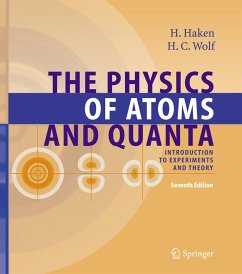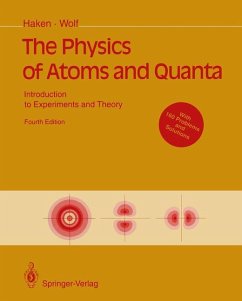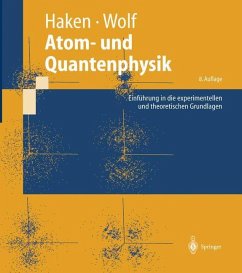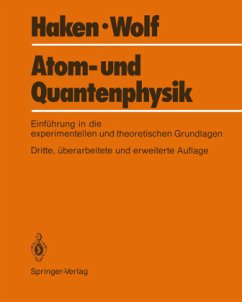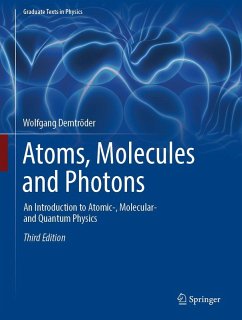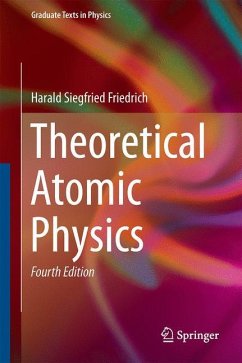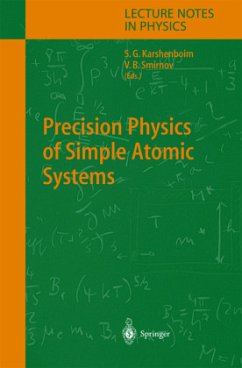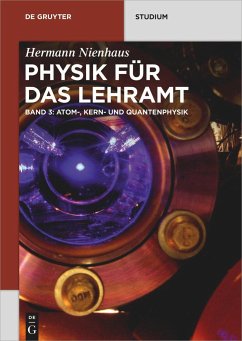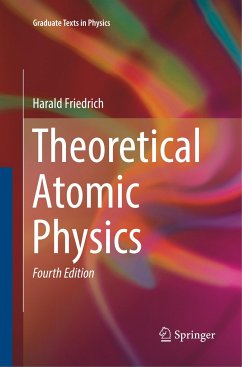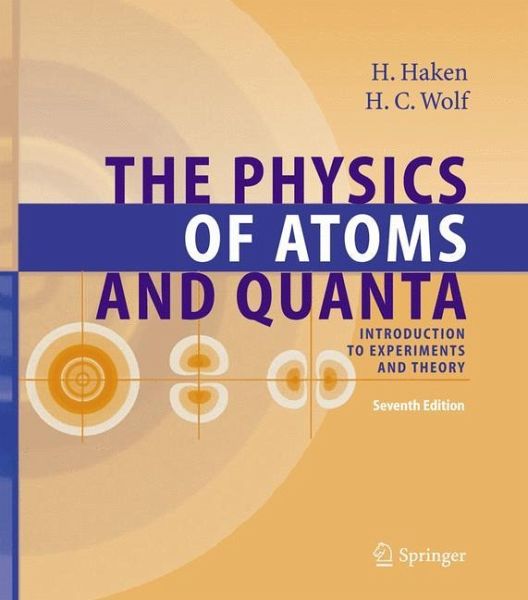
The Physics of Atoms and Quanta
Introduction to Experiments and Theory
Übersetzung: Brewer, W.D.
Versandkostenfrei!
Versandfertig in 1-2 Wochen
91,99 €
inkl. MwSt.
Weitere Ausgaben:

PAYBACK Punkte
46 °P sammeln!
The Physics of Atoms and Quanta is a thorough introduction to experiments and theory in this field. Every classical and modern aspect is included and discussed in detail. The new edition is completely revised, new sections on atoms in strong electric fields and high magnetic fields complete the comprehensive coverage of all topics related to atoms and quanta.
All new developments, such as new experiments on quantum entanglement, the quantum computer, quantum information, the Einstein-Podolsky-Rosen paradoxon, Bell's inequality, Schrödinger's cat, decoherence, Bose-Einstein-Condensation and the atom laser are discussed. Over 170 problems and their solutions help deepen the insight in this subject area and make this book a real study text.
The more advanced book by the same authors entitled Molecular Physics and Elements of Quantum Chemistry coplements this unique textbook.
All new developments, such as new experiments on quantum entanglement, the quantum computer, quantum information, the Einstein-Podolsky-Rosen paradoxon, Bell's inequality, Schrödinger's cat, decoherence, Bose-Einstein-Condensation and the atom laser are discussed. Over 170 problems and their solutions help deepen the insight in this subject area and make this book a real study text.
The more advanced book by the same authors entitled Molecular Physics and Elements of Quantum Chemistry coplements this unique textbook.
The highly positive affirmation and wide reception that this book continues to receive from professors and students ahke is the occasion for this 7th edition. Once again we have included a number of valuable suggestions for improvements, which we address as appropriate. In addition, we refer to a number of developments in atomic physics. Of these new developments in regard to exotic atoms, we mention antihydrogen in par ticular, because fundamental experiments in matter and antimatter can be expected in the future. Furthermore, we have inserted a chapter on the behaviour of atoms in strong elec trical fields. Experiments with corresponding lasers could only recently be realized. We thank our Jenaer colleague, R. Sauerbrey, for his contribution of this chapter. We have also included a new chapter on the behaviour of the hydrogen atom in strong magnetic fields. The results are of profound interest for two very different fields of physics: on the one hand, according to classical physics, one expects chaotic behaviour from Rydberg atoms in magnetic fields that can be created in the laborato ry; thus, an association can be drawn to aspects of chaos theory and the problems of quantum chaos. On the other hand, the very strong fields necessary for low quantum numbers are realized in the cosmos, in particular with white dwarfs and neutron stars.



